"Do you like to beat the police? Then we are going to beat you now". Oil worker from Rečyca went to protests for the first time and ended up in a colony
Kanstantsin Mikhaltsou, a political prisoner and oil worker from Rečyca, was detained in May 2021. The KGB came to him because of Volnaye Panstva Telegram chat, where Konstantin and his colleagues discussed the protest events. In 2020, the man stood up for a protester during detention and pushed away a police officer. For this, the Rečyca resident was sentenced under three articles to three years in a penal colony. After his release, the political prisoner was not left alone. After the initiation of a new administrative case, he did not wait for another detention and left Belarus in the spring of 2024.
Kanstantsin told Viasna how he skipped an ideological lecture to go to a concert of his favorite band, how employees humiliate prisoners in the colony, and how the guards forgot him in a 1 m² cell.
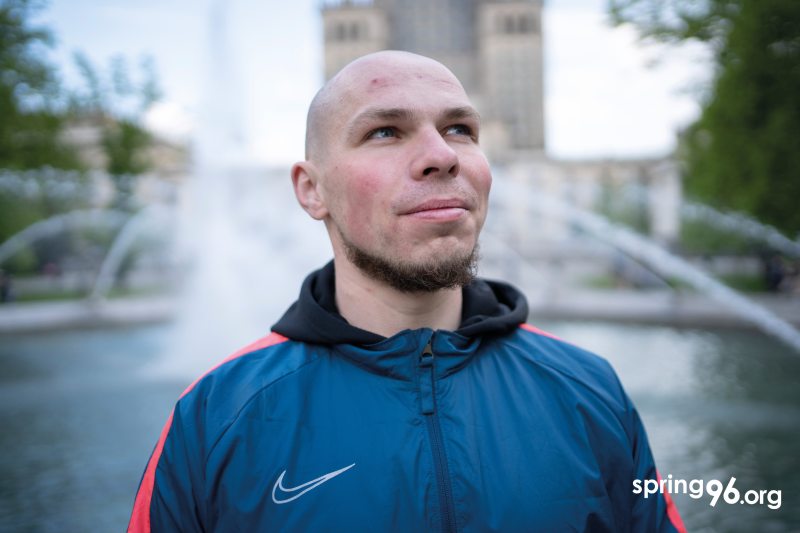
BYSOL has opened a fund-raiser to help former prisoner Kanstantsin Mikhaltsou settle in a new place and restore his health after his imprisonment.
You can help him here.
"If you show attitude, we'll lock you up"
Kanstantsin is from Rečyca, and he worked in the seismic survey department of Belorusneft as an assistant geologist.
On the evening of August 9, 2020, after the elections, Kanstantsin and his friends went for a walk to the city center, where protesters had already gathered.
"I voted for Tsikhanouskaya in my school No. 7 and went to the city center. There were already people gathered near a fountain, who were just discussing what had happened at their voting sites. At some point, the police appeared and started detaining people. Someone tried to stand up for others, and cars blocked the road."
The interlocutor says that he stood up for an unknown man, pushed a policeman in the back, and asked why he was detaining people.
"If you show attitude, we'll lock you up," the security officer replied.
Forgetting everything and moving on
The Rečyca resident did not remember the August events and did not participate in other protest actions. He lived a quiet peaceful life, Kanstantsin says.
"But on May 12, at five in the morning, I heard a knock on my door. At that time, my colleague and I rented an apartment. As I later found out, we were visited by KGB officers. My phone and iPad were immediately taken away from me."
Initially, Kanstantsin attracted attention for being a participant of Volnaye Panstva Telegram chat, where oil workers from Homieĺ and Rečyca discussed both their work and expressed their attitude to the results of the presidential elections.
Six of the 12 chat participants were detained that day. The man was taken to the Rečyca police department to be questioned about the chat.
"We thought that the security forces had just made a mistake"
Kanstantsin says that he did not expect at all that three more years of a penal colony would await him after his administrative detention.
"My colleague and I thought we were about to leave. That the security forces just made a mistake, because we didn't do anything serious. I immediately told them the passwords for all my devices, because I had nothing to hide."
As a result, Kanstantsin was sentenced to ten days of detention for allegedly "disobeying a policeman" during a search.
"I sincerely hoped that during these 10 days they would realize that I've done nothing wrong and let me go."
At the end of the tenth day, Kanstantsin learned that a criminal case had been initiated against him.
"At first, I was accused of participating in a protest action (Part 1 of Article 342 of the Criminal Code) and threatening violence against a policeman (Article 364 of the Criminal Code). And I did not deny my participation in the March."
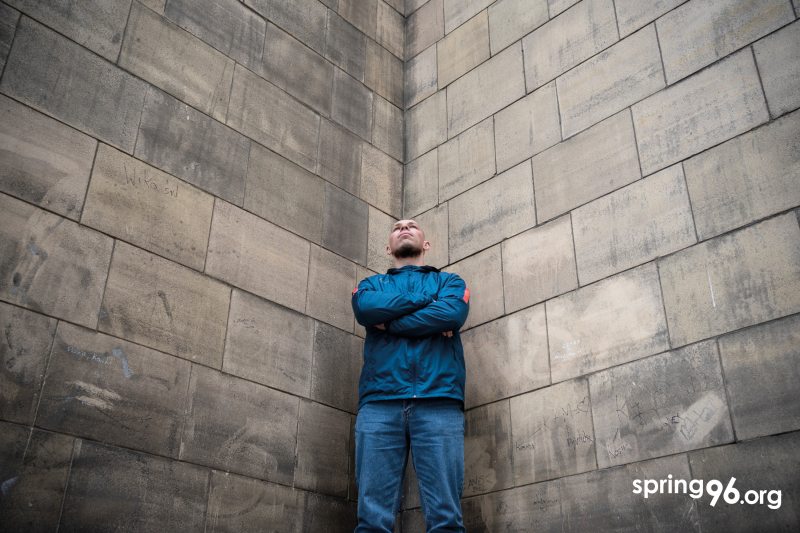
They initiated a criminal case and immediately took away my mattress
The day after the criminal case was initiated, the attitude of the security forces towards Kanstantsin changed dramatically, says the former political prisoner.
"First of all, I was transferred to solitary confinement. When I packed my things, they told me not to take my mattress. They said they would give a new one in the evening. Of course, they never gave it to me."
Prior to the trial, Kanstantsin was in the Homieĺ pre-trial detention center (SIZO). For investigative actions, he was transferred to the Rečyca temporary detention facility (IVS). There were several such transfers, each of which lasted about a week.
During the man's stay in the IVS, they did not accept care packages with clothes for him. The security forces told Kanstantsin's father that they did not have his son, and that he should go to Homieĺ to look for him.
"The employees of the pre-trial detention center were biased towards political prisoners. When they found out that I was sentenced under a "political" article, they immediately started saying: "Oh, you wanted to change the government! What didn't you like? How much were you paid?"
"The guards forgot me in a 1 m² cell"
Upon returning to SIZO after a transfer, a prisoner is first placed in a small 1 m² cell without a window. They are searched there and then transferred to a regular cell.
It happened that Kanstantsin was kept there for five or six hours.
"Just before lights out at 22 o'clock, a guard came up to me and asked with surprise what I was doing there so late."
In IVS, non-political prisoners who collaborated with the administration were put to one cell with the man. They constantly questioned Kanstantsin about the circumstances of his case.
I slept on the floor for two months and got a kidney infection
Kanstantsin says that the conditions of detention in the Rečyca IVS were much more harsh than in the Homieĺ SIZO.
"No one gives you a mattress in Rečyca: sleep on the floor. They also forbade me to bring food from the care package that I received in Homeĺ. I haven't eaten meat since I was a kid, so it was an extra challenge."
With each transfer to Rečyca IVS, the attitude towards the man worsened.
"I got a kidney infection because there was a draft, and it was already very cold at night. Later, my father transfered medicines to me."
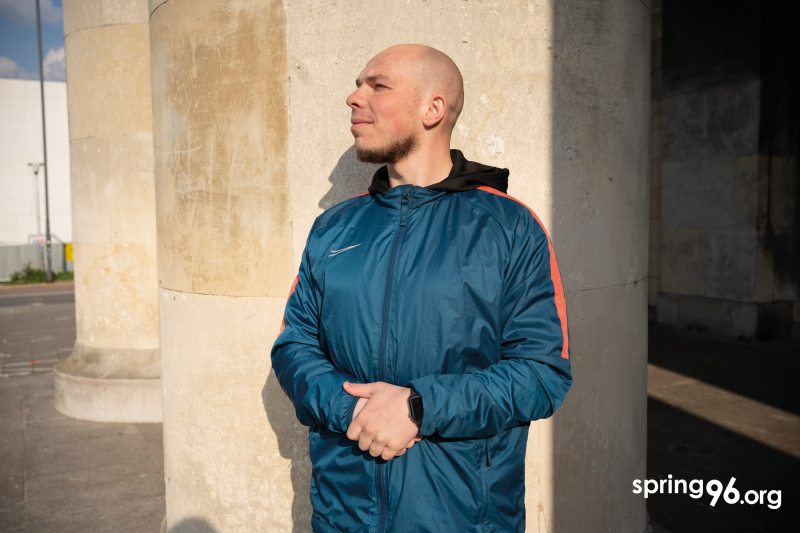
Is it allowed to give food to a political prisoner?
According to the source, the administration of the Rečyca detention center was afraid to show lenient attitude towards the political prisoner because it could have consequences. Once, when Kanstantsin's father brought him medicines for his kidneys, they were not accepted: the employees lied that the political prisoner was in SIZO. Kanstantsin says that this initiative came personally from the then head of IVS Labanau.
The employees of the detention center were so afraid to communicate with the political prisoner in any way, that it sometimes reached completely absurd situations, the interlocutor says.
"Once a young intern was delivering food and did not stop near my cell. I started knocking on the door for him to give me my meal. Then I heard him ask a senior employee: "Is it allowed to give food to him?"".
"Now I know exactly what a blow is and what a light push is."
Throughout the last month of summer, the trial of Kanstantsin lasted for six sessions. At one of them, the policeman who was pushed by Kanstantsin during the protests was a witness. The man says that the statement of the security officer about the violence against him looked comical.
"I am 170 cm tall, and that policeman is 193 cm tall and weighs 110 kg. I mean, he's a pretty strong guy. It was fascinating to hear how he asked for 1000 rubles as compensation for moral damage."
Kanstantsin's initial accusation included a "light push in the back," which later transformed into a "heavy blow," the source says.
"The court devoted an entire session to the investigation of what I did to the policeman. Now I know exactly what a blow is and what a light push is."
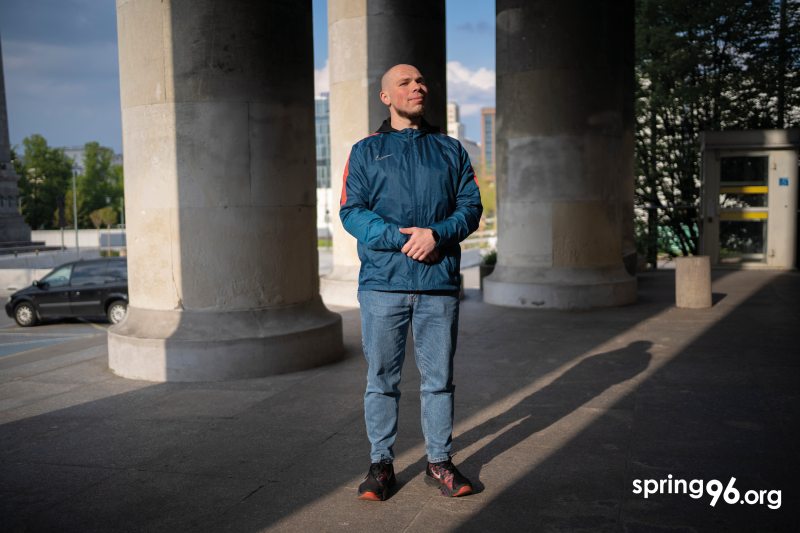
"Do you like to beat the police? Then we are going to beat you now." Penal colony No. 15
Upon arrival at the colony, Kanstantsin realized that the administration paid special attention to him. The colony employees threatened to beat him, and other prisoners provoked him.
"The head of the security department, Vesialou Artsiom Viktaravich and his deputy Kavaliou Dzianis Aliaksandravich came to us. They read in advance what I was convicted of and started the conversation with threats: "We will beat you. Come on, we're joking.""
The interlocutor says that he has also encountered biased and abusive attitude from the so-called "activists", i. e. the prisoners who cooperate with the administration. At their direction, political prisoners were assigned inspections for far-fetched reasons, where they were beaten or forced to do push-ups.
"The activists said: "So you're another white-red-white instigator." Among them was Illia Mikalayevich Kisliakou, who constantly sought to tease and provoke me and others: "Do you like to beat the police? Then we are going to beat you now."
The "activist" left creases on others' beds with his hand. This was counted as a poorly made bed and the person was called for inspection, where they were beaten or otherwise physically punished."
"I borrowed gloves from other prisoners." Industrial zone in the colony
The first year of imprisonment Kanstantsin cleaned aluminum wires from insulation.
"We worked from 8 a.m. to 4:20 p.m. The work is terrible, and the working room is very dirty and dusty. We were not given any work clothes. I had to borrow gloves from other prisoners. We were given just some disposable ones.
But most of all, everyone there was worried about wages: up to one ruble per month (0.28 euro cents — translator's note). For example, I received 80 kopecks a month for cleaning aluminum."
Each prisoner had a mandatory amount of work to perform. Once the administration raised it, so many were unable to meet the requirements. For this, reports were drawn up on prisoners, but only on political ones, Kanstantsin says.
Another serious problem in the industrial zone is the lack of a shower, the source says. And to wash oneself after working, one needs to perform a lot of long and slow manipulations with water and a bucket.
"You're all dirty in heavy fuel oil when you return after work. You take a 10-liter bucket of water and throw the heating element there. Then you go to the shower. There you dilute boiling water with cold water in the basin and pour it on yourself, scooping water from the basin with a technical cup. And so does the whole squad. Therefore, many simply did not wash, waiting for a normal shower, which you can take only once a week."
Later, he switched to woodworking.
"The main thing that made the new job different was that you really had to work there. But there was a shower."
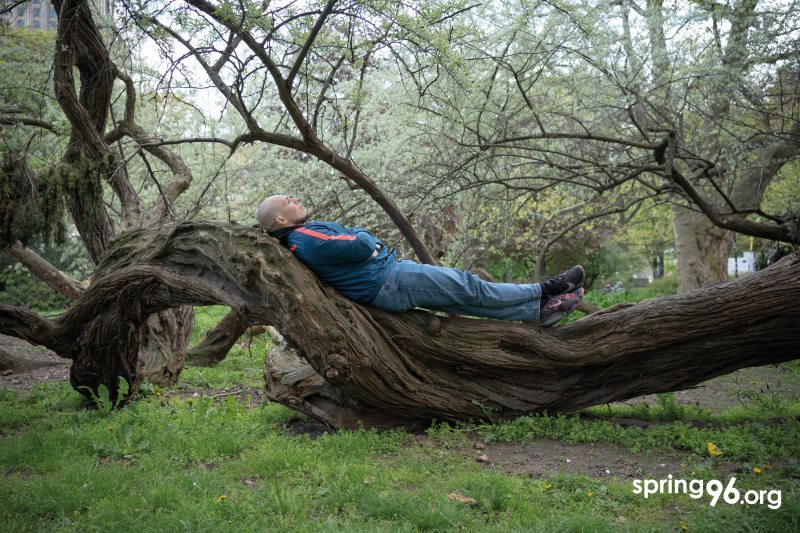
"In the squad, you're always afraid."
According to the interlocutor, solitary confinement cells (SHIZO) with bare concrete walls were located below the ground level. There was no heating, so the prisoners were very cold. Despite the terrible conditions, Kanstantsin says that in some ways it was even better there than in the squad.
"In SHIZO, I can quietly stay on my own. And in the squad you are always afraid that an "activist" or an employee will pick on you. For example, they can ask why your shirt is not fully buttoned, you scarf is pulled up high, or just for looking untidy."
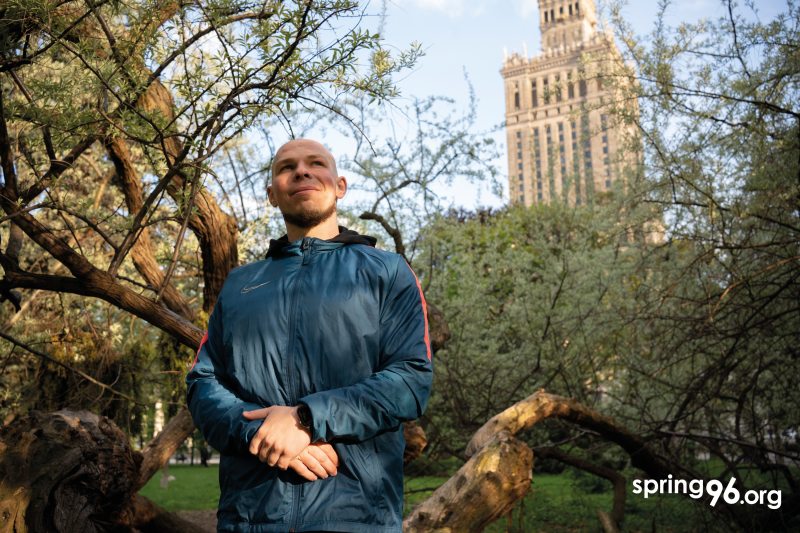
Instead of an ideological lecture, I went to Minsk with friends for a concert
Kanstantsin served his entire sentence and was released in February. A week later, policemen began to come to him at night with checks. It was also necessary to regularly come to the police station and attend ideological lectures. The interlocutor missed one such lecture because he went to Minsk with friends to a concert of his favorite band. For this, an administrative case was initiated against him. Kanstantsin was afraid that a new criminal case might follow, so he decided to leave Belarus for Poland. He is temporarily staying at his friend and colleague's. He is restoring his health and settling in a new place.

















